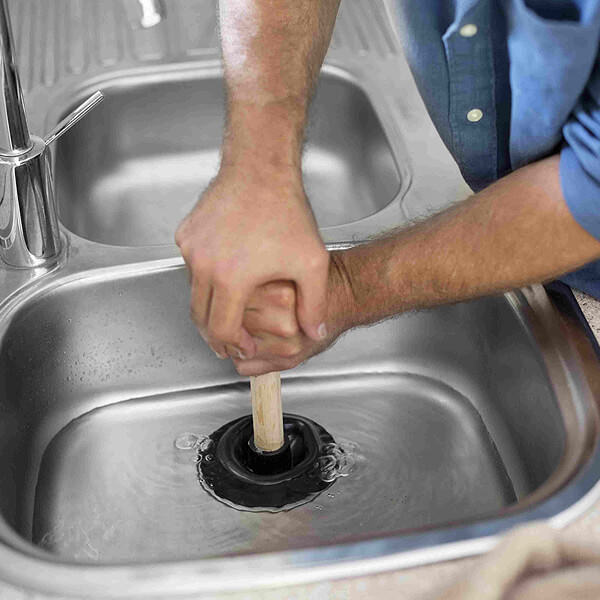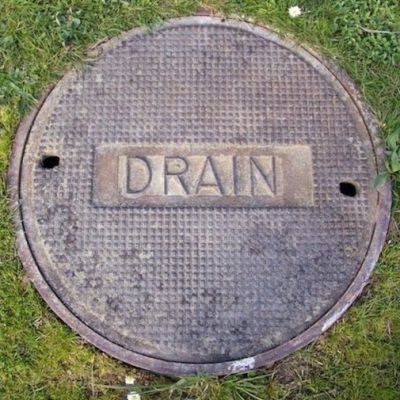How to Deal with a Blocked Drain Independently Prior to Seeking Plumbing Professionals
How to Deal with a Blocked Drain Independently Prior to Seeking Plumbing Professionals
Blog Article
Are you currently hunting for information and facts around How to handle a clogged drain in your home?

Introduction
Dealing with a blocked drain can be a frustrating experience, interrupting daily tasks and possibly causing damage to your building. Nevertheless, before reaching out to plumbing professionals, there are steps you can take to resolve the concern yourself. In this guide, we'll explore DIY options and preventive measures to tackle an obstructed drainpipe efficiently.
Recognizing the Issue
The primary step in dealing with a blocked drainpipe is identifying the indicators. Slow-moving drain, gurgling noises, foul odors originating from drains, or water support up are common signs of an obstructed drainpipe. Recognizing these signs early can assist prevent further problems.
Usual Root Causes Of Blocked Drains
Understanding the elements that contribute to drain clogs is essential for effective resolution. Usual offenders include hair, soap residue, grease, food particles, and international items like hygienic items or paper towels. Tree origins getting into below ground pipelines can also create substantial blockages.
Do it yourself Solutions
For small clogs, several DIY remedies can be effective. Putting boiling thin down the drain can aid dissolve grease and particles. Sodium bicarbonate and vinegar or a mix of salt and baking soda can function as natural cleaners. Using a bettor or plumbing serpent to dislodge blockages is one more choice.
Devices and Devices
Having the right tools accessible can make DIY drain cleansing much more reliable. A bettor is a versatile tool for getting rid of clogs in sinks, commodes, and showers. A plumbing serpent or auger can get to much deeper obstructions, while drainpipe cleaning chemicals can be used carefully for stubborn blockages.
Safety nets
To prevent future clogs, taking on safety nets is critical. Install drain guards or filters to catch hair and debris before they get in the pipelines. Regularly flush drains pipes with hot water to dissolve grease accumulation, and stay clear of getting rid of grease or solid waste away.
When to Call an Expert
While DIY options can fix minor blockages, specific signs show the requirement for specialist help. Persistent clogs, foul odors despite cleaning efforts, or numerous drains supporting concurrently are red flags that call for professional intervention.
Choosing the Right Plumbing Solution
When selecting a plumbing solution, take into consideration variables such as experience, licensing, and customer evaluations. Select a trusted plumbing technician with a record of high quality craftsmanship and clear rates practices.
Cost Factors to consider
The cost of expert drain cleaning services can vary depending on the severity of the obstruction and the plumbing's prices. Demand quotes from multiple service providers and ask about any surcharges to make certain transparency and stay clear of shocks.
Security Measures
When attempting do it yourself drainpipe cleansing, prioritize security. Use safety handwear covers and eyewear to avoid contact with harmful chemicals or microorganisms. Never blend different drain cleaning items, as this can produce dangerous fumes.
Instance Researches
Real-life instances illustrate the performance of do it yourself services and the relevance of prompt professional intervention in solving drainpipe blockages.
Conclusion
By following the tips detailed in this guide, you can efficiently deal with obstructed drains pipes and prevent future plumbing problems. Whether opting for do it yourself solutions or looking for expert assistance, punctual activity is crucial to maintaining a healthy plumbing system and protecting the honesty of your home.
How to Clear a Clogged Drain Yourself (And When to Call In the Professionals)
What Can Clog a Drain
Dirt Skin flakes Hair Grease Soap scum Food Offset pipes Tree roots Small objects Mineral buildup DIY Tricks to Unclog a Drain
You can fix this! Once you have identified the source of the clog (or have a vague idea), you can try one or a combination of these fixes in order to clear your plumbing.
Wire Hanger or Snake
Untangle and clear out hair from a drainpipe with a homemade snake. Use a straightened-out wire hanger with a 90-degree angle hook to locate the clog and drag out any unwanted material.
Remember not to push the clog further down to where the wire hanger cannot reach! If you need to follow up with a plunger, give it a try. Your efforts might be more successful after it’s been wire-snaked.
If you want to get fancy and don’t have a wire hanger to spare, head to the store and pick up a hand-operated drain snake. You can get one for $10-$30. It may save you the hassle, and provide additional length to reach deep into the clogged pipe.
Plunger
A cup plunger has a suction cup attached to a wooden handle. The rubber creates a seal around the drain, and increases the pressure force of the plunger.
Plunge for 30-second increments to loosen the clog. This may need to be repeated over the course of 15-20 minutes. Once plunged, run the water to flush the remaining material out of the drain.
Remember– never use a plunger if you have used a chemical drain cleaner. These chemicals can splash up from the force of the plunger and cause serious injury or burns.
Boiling Water
Hot water can sometimes break up materials into a flushable amount. Dirt, grease, and soap buildup requires heat in order to unstick from surfaces.
Take your kitchen kettle and heat your water to a boil. Once it reaches a rolling boil, pour it directly down the drain into the blockage. Carefully follow with plunging, if necessary.
Don’t worry if this takes more than one try! It can often take multiple kettles and repeated plunging in order to clear a particularly stubborn clog.
Chemical Drain Cleaner
As a last resort, pick up a bottle of chemical drain cleaner. Drain-cleaning chemicals are potent, and not very good for the environment.
You may need to wear protective eyewear in gloves before handling your bottle of chemical drain cleaner. Follow the instructions printed on the bottle, and flush with water as soon as the instructions allow. Do not follow with plunging.
Baking Soda and Vinegar
As a safer alternative to chemical drain cleaner, baking soda and vinegar can create a chemical reaction that clears tough clogs.
Combine one cup of cleaning vinegar with one cup of boiling water, and set aside. Once you have done this, pour half a cup of baking soda down the drain. Give the baking thirty seconds to settle and cover a large portion of the problem drain.
Following the baking soda, pour down your vinegar and hot water solution. Once the vinegar and baking soda combine, the mixture will bubble and fix. Let this reaction fizzle in the drain for about an hour.
After an hour, follow with a kettle’s worth of hot water. The heat and liquid should flush out any remaining material.
When to Call a Plumber
If your DIY attempts haven’t cleared your clog drain, it’s time to call in a professional. It’s not worth losing access to your kitchen sink or high-traffic bathroom. A clog in a vital area can keep you from the things you’d rather be doing, and derail your routine.
Anytime a clog is causing water to spread is a time to call in a plumbing service. What starts out as a little bit of water can quickly grow into serious, expensive water damage.
Additionally, a serious clog can result in burst pipes or serious leaks. Make sure you know when to take it seriously!
https://myguysnow.com/how-to-clear-a-clogged-drain-yourself-and-when-to-call-in-the-professionals/

I'm certainly very interested in Some easy tips to fix blocked drains and I am assuming you enjoyed reading my page. Please pause to promote this article if you appreciated it. I am grateful for your time. Come back soon.
Call Today Report this page